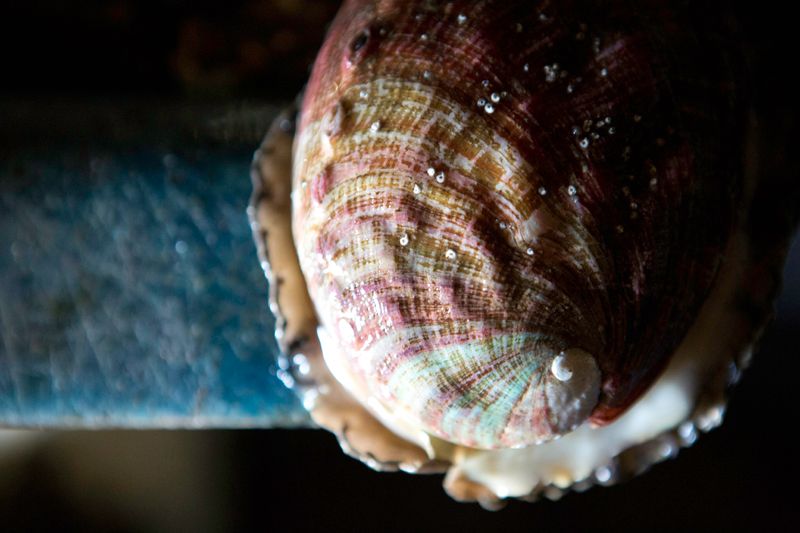For this week's Escape from SF, we toured American Abalone Companyin Davenport with owner-farmer Tom Ebert. Ebert walked us through the process of farming abalone all the way from the seedlings to harvest to edible delicacies.
The American Abalone Company has specialized in the unique seafood delicacy, the California red abalone, for the past 20 years, operating a land-based facility pumping seawater out of the ocean into tanks.
How does abalone-farming work?
The aquaculture at American Abalone farm is a series of cave-like tanks filled with ocean water. When the abalone are young, they feed on algae in medium-sized tanks. The algae gives their shells a green tint. As the abalone grow to around an inch or so, they are then transferred to the nursery tanks (large darker environments) where they feast on fresh kelp, which adds bands of soft red color to their shells.
Why farm abalone?
In short? Supply, demand... and pollution. The slow-growing (minimum of three years) California red abalone was once common enough in California that they could be collected at low tide. Now our native wild red abalone is endangered due to pollution as well as increasing demand. Operating an abalone aquaculture offers a legal and sustainable source of the delicious yet endangered marine gastropod.
What does abalone taste like?
Depending on how it's prepared, we would describe the taste of abalone as sweet like a small oyster, slightly chewy like calamari, with a faint taste of the sea.
Want to try some abalone in SF? Check out the menu at Sam’s Grilll and North Beach Restaurant.
Want to make them at home? Order them online from American Abalone or pick them up every Saturday from 10am to 2pm. Here are some recipes for sushi-style and pan-fried abalone. Enjoy!
Related Articles
